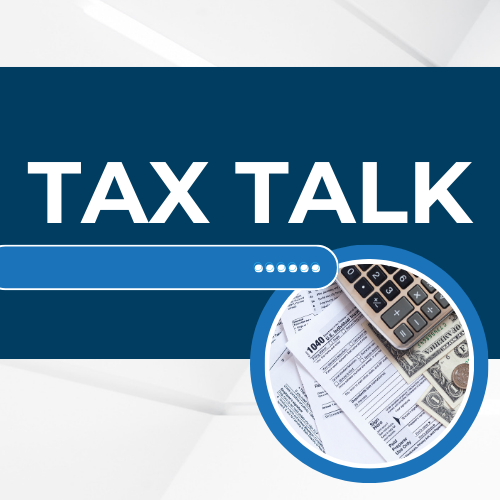Tax Tips for Small Manufacturing Companies
Tax Tips for Manufacturing Companies: Maximizing Returns and Minimizing Liabilities

Tax planning is a crucial aspect of managing your business. Effective tax strategies can help you reduce your tax liability, improve your cash flow, and enhance your overall financial health. In this blog post, we'll explore some valuable tax tips specifically tailored for manufacturing companies. By implementing these strategies, you can make the most of available tax benefits and ensure compliance with tax regulations.
Understand Your Tax Classification
Manufacturing companies often have various tax classifications based on their business structure. These may include sole proprietorships, partnerships, corporations (C-Corp or S-Corp), or limited liability companies (LLCs). Understanding your tax classification is essential because it determines your tax obligations and the specific deductions and credits available to your business.
Take Advantage of Tax Credits
- Manufacturing companies may be eligible for several tax credits that can significantly reduce their tax burden. Some common credits include:
- Research and Development (R&D) Tax Credit: Manufacturing companies that invest in innovation and product development may qualify for R&D tax credits.
- Work Opportunity Tax Credit (WOTC): If you hire employees from certain targeted groups, such as veterans or individuals with disabilities, you may be eligible for WOTC.
- Energy-Efficiency Tax Credits: Investing in energy-efficient equipment or processes can lead to tax incentives and credits.
- State and Local Tax Credits: Check with your local government for available tax incentives for manufacturers.
Depreciation and Capital Expenditures
Manufacturers often invest heavily in machinery, equipment, and infrastructure. Take advantage of depreciation rules that allow you to deduct the cost of these assets over time. The Tax Cuts and Jobs Act (TCJA) introduced favorable depreciation rules that allow for more significant deductions in the year the assets are placed in service.
Additionally, consider using Section 179 and bonus depreciation to accelerate deductions for certain asset purchases. Consult with a tax professional to determine the best approach for your company's specific circumstances.
Inventory Management
Effective inventory management can impact your taxes. The way you account for inventory (e.g., FIFO, LIFO, or weighted average) can affect your cost of goods sold (COGS) and, consequently, your taxable income. It's crucial to choose a method that aligns with your business needs and consult with an accountant to ensure compliance.
State and Local Taxes
Remember that state and local tax regulations can significantly vary, and they may have a substantial impact on your tax liability. Work closely with a tax professional who is well-versed in state and local tax laws to optimize your tax strategy. Consider factors like state tax incentives, sales tax, property tax, and any available tax credits.
Employee Benefits and Retirement Plans
Offering competitive employee benefits and retirement plans can be an attractive way to recruit and retain top talent. Certain retirement plans, such as 401(k)s, can also provide tax benefits for both the business and employees.
Keep Impeccable Records
Proper record-keeping is vital for tax compliance and audit preparedness. Maintain thorough documentation of financial transactions, expenses, receipts, and any relevant tax forms. Utilize accounting software or hire a professional accountant to ensure accuracy.
Manufacturing companies face unique tax challenges, but with careful planning and adherence to tax regulations, they can optimize their tax strategies and reduce their overall tax liability. Implementing these tax tips, along with seeking guidance from a qualified tax professional, can help your manufacturing company thrive financially while staying in compliance with tax laws. Remember that tax laws may change, so staying informed and adapting your strategy accordingly is essential for long-term success. Contact us whenever you're ready to outsource your bookkeeping, accounting, and tax planning.
Quick Links
Contact Information
Business Hours
- Mon - Fri
- -
- Sat - Sun
- Closed















